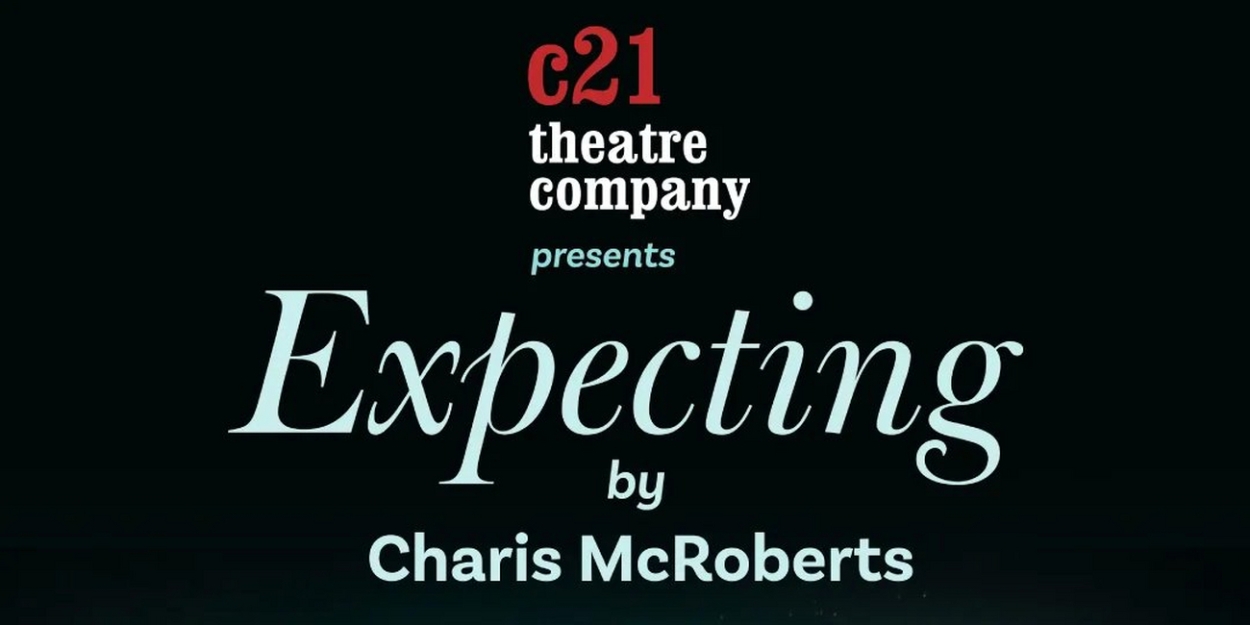Review: EXPECTING at the Keegan Theatre
Northern Ireland's C21 Theatre Co. makes a US premiere at DC's Keegan Theatre with EXPECTING

Recently, I encountered a social media post that made me stop scrolling for a bit and think. The author of the post, an avid theatergoer, observed a recent shift towards 90-minute productions among theatre makers, possibly influenced by the pandemic era's industry-wide reflection and the demand for shorter, more digestible content. This trend, they argued, has led to rushed narratives and underdeveloped characters, leaving audiences wanting more substance.
It made me ask myself (as well as many followers I’m sure): should we be embracing the 90-minute format or is it a detrimental trend in contemporary theatre? While acknowledging the shortcomings of many shows within this format, I've also witnessed productions like EXPECTING at Keegan Theatre, which effectively deliver a compelling story in 90 minutes (or much less, in this case), challenging the notion that longer runtime is necessary for impactful theatre. This show may be an exception rather than the rule, but it is at least some proof that effective storytelling is possible within this new trend.
EXPECTING is a production of Northern Ireland’s C21 Theatre Company that is having its US premiere hosted at DC’s Keegan Theatre. The production was produced in collaboration with deaf artist Paula Clarke, who also stars in the play as Shauna, and features both deaf and hearing artists. It’s a heartwarming and emotional poem of a play featuring first-time parents navigating the trials and tribulations of bringing a child into this world. The play also explores the intersection of starting a family and what that looks like when the first-time parents include one deaf and one hearing person. There’s a lot of ground to cover in the show’s astonishing 75-minute run time, but playwright Charis McRoberts accomplishes it effectively.
The play opens with Shauna (Paula Clarke) and her husband Robbie (Eoghan Lamb) comforting their newborn daughter, Aisling (voiced by André Thiébot with on-stage sign language by Mandy Welly). She’s gotten fussy in the middle of the night, and we witness a short but tense exchange between the couple. Turning the clock back several months, we’re now back to the earlier days of Shauna’s pregnancy as we re-trace the steps that led up to the scene we just witnessed.
As the story unfolds, we learn about Shauna and Robbie's relationship, which mostly comes in the form of back-and-forth monologues. We get to hear both perspectives, and it’s a charming and humble romance. Their love was first forged over a half-pint of Guinness and blossomed from there. We also learn about their challenges as a differently-abled couple - Shauna is deaf while Robbie is not. Robbie's dedication to Shauna is evident right away as he learns sign language to communicate effectively, contrasting with Shauna's past experiences.
Robbie initially embodies the archetype of a devoted husband, yet as the weight of fatherhood descends upon him, cracks begin to surface. His inability to adapt to the demands of childcare manifests in behaviors indicative of a growing sense of overwhelm. His late nights away from home once the baby is born and a quest for respite underscore the seismic shift in his life, and his arc offers a very real glimpse into the transition to parenthood so many people have nervously faced before.
Also influencing his behavior is a tumultuous childhood speckled with tragedy and an unfortunate familiarity with a sense of isolation. His mother left the home at a young age, and his father was not always present or supportive of Robbie. Perhaps Robbie’s anxieties are influenced by a fear that he will fall into the same harmful patterns as his parents. Whatever the root, it’s clear Robbie feels enormous pressure to be perfect. Despite his initial struggles, Robbie learns that what Aisling truly needs is his presence and love, not perfection.
Shauna, on the other hand, grapples not only with the challenges of motherhood but also with the potential sacrifice of her own aspirations as a photographer and artist. The juxtaposition of her burgeoning career with the demands of childcare underscores the sacrifices often made by mothers in pursuit of familial harmony.
Unbeknownst to Robbie, Shauna is considering a tremendous opportunity that would take her to New York City for at least a month to teach at a prestigious art school. However, Robbie clearly needs her support through his turmoil. This poignantly encapsulates the sacrifices that they will need to navigate not just in the present but in the future as parents. It also shows the two of them just how much they’ll need to lean on each other in times of hardship.
Through a blend of fantastical scenes and monologues, we also get to witness Aisling's journey from conception to just before birth, but her scenes aren’t linear. They’re inter-spliced with scenes of Shauna and Robbie’s journey from expecting to first-time parents.
The Aisling sequences are quite creative and memorable. They’re dreamlike, often funny sequences that utilize the upstage projections by displaying childlike drawings, words, and illustrations. These visualizations complement the language well and provide another access point for the story.
In EXPECTING, the stellar performances of Paula Clarke and Eoghan Lamb elevate the production, undoubtedly. Both actors bring depth and authenticity to their roles as Shauna and Robbie, respectively, which have clearly been honed through their journey with the play across various productions on multiple continents.
Clarke and Lamb adeptly navigate the play's tonal shifts, seamlessly transitioning between comedic, serious, and tender moments with a believability that captivates the audience. Clarke's use of sign language for much of her dialogue adds a layer of authenticity to Shauna's character, while the uncredited voice actor articulating her thoughts enhances accessibility for the audience. Not to mention, this allows the audience to fully engage with the narrative by freeing them from the burden of quickly reading subtitles.
Special recognition is due to Mandy Welly, the ASL interpreter for the production and on-stage embodiment of the unborn child, Aisling. Welly's interpretation of the Aisling monologues elevates the sweet glimpses into the mind of the unborn child, although the poetic passages skirt very close to becoming an advertisement for pro-life talking points. Still, the production skillfully navigates this potentially contentious territory without alienating audience members with differing viewpoints on the issue.
In summary, EXPECTING not only captivates with its compelling narrative and powerful performances but also demonstrates a commitment to inclusivity and accessibility through its innovative use of sign language, voice actors, and projections. Clarke, Lamb, and Welly, along with the entire production team, have crafted a production that resonates deeply with audiences, offering a thought-provoking exploration of love, sacrifice, and the journey into parenthood. Perhaps most importantly, it’s a wonderful story about the transformative power of communication.
EXPECTING was written by Charis McRoberts and directed skillfully by Stephen Kelly. Other members of the creative team include Sandy McAllister (Lighting Designer), Duncan Gordan (Set Designer), Fionnuala Fagan-Thiébot (Sound Designer), Faith Dawson (Costume Designer), Fergus Wachala-Kelly (Illustrator/Animator/Video Designer), and Graeme Rodger (Underwater Footage).
Audiences will have to act quickly to see this production as it only runs from now until May 25, 2024 at DC’s Keegan Theatre.
The play runs 75 minutes with no intermission.
Comments
.png)
|
.png)
|
Videos
